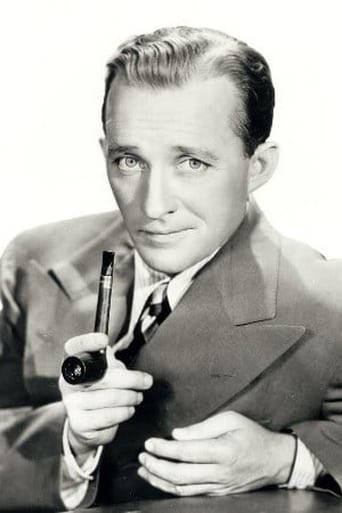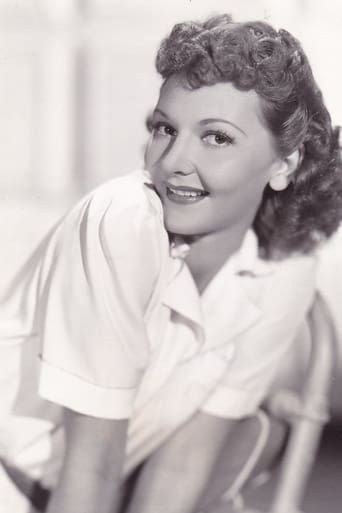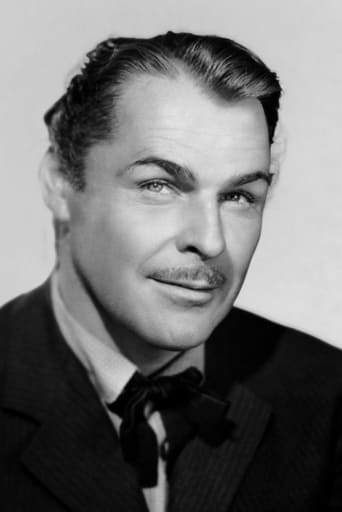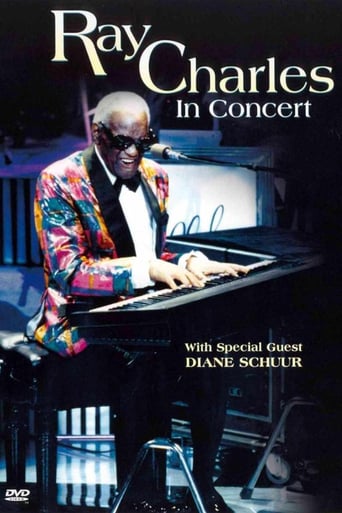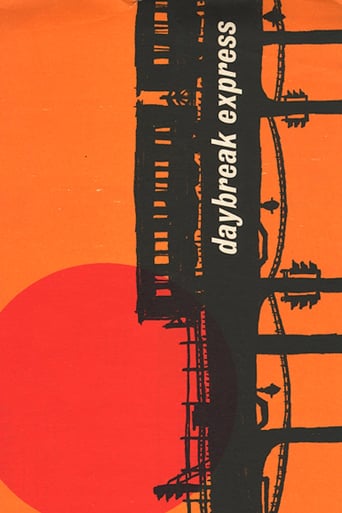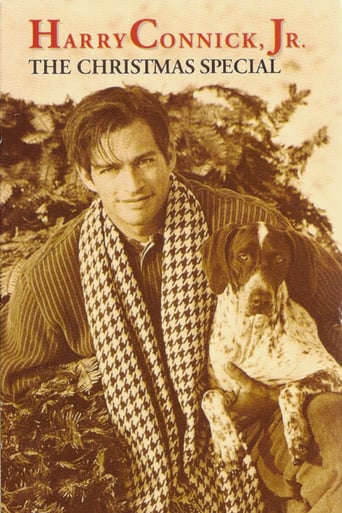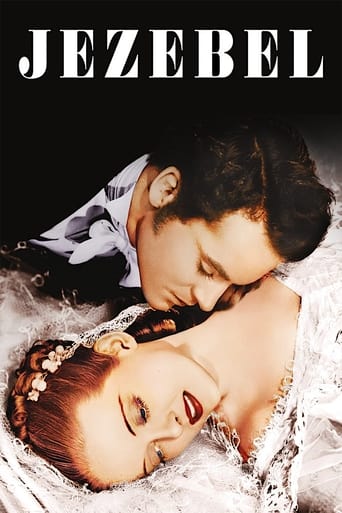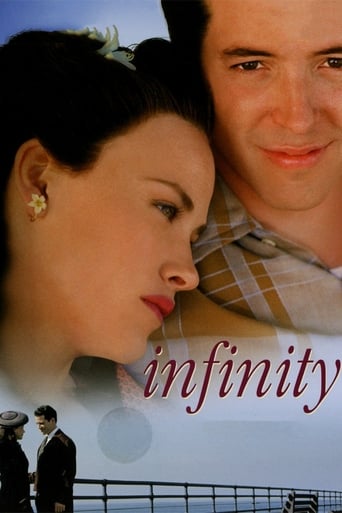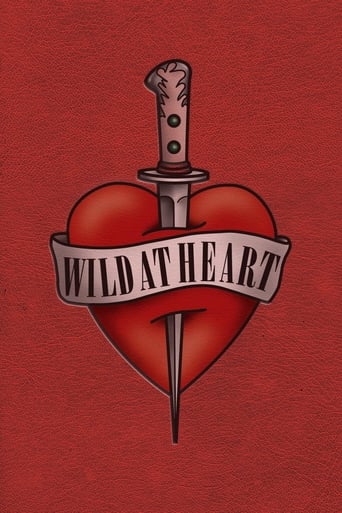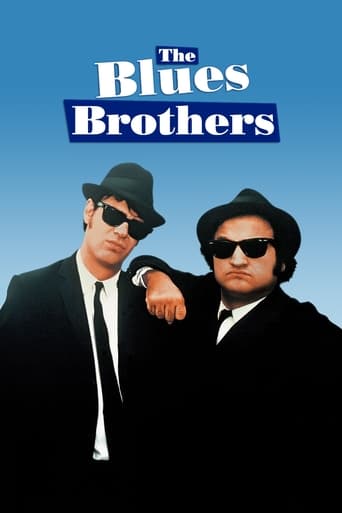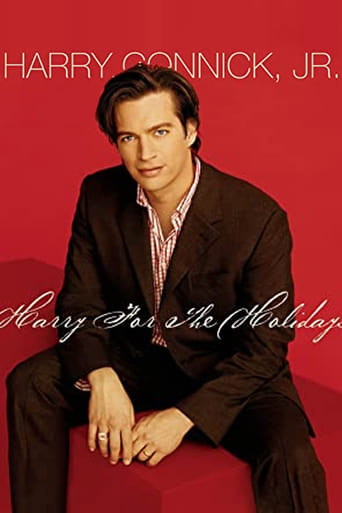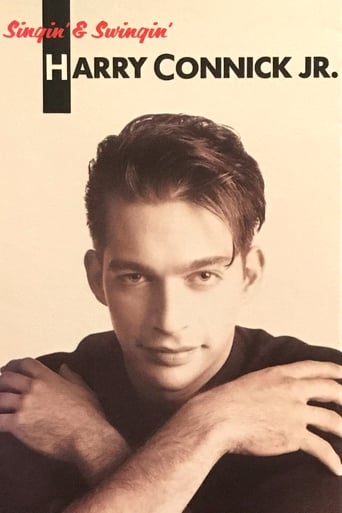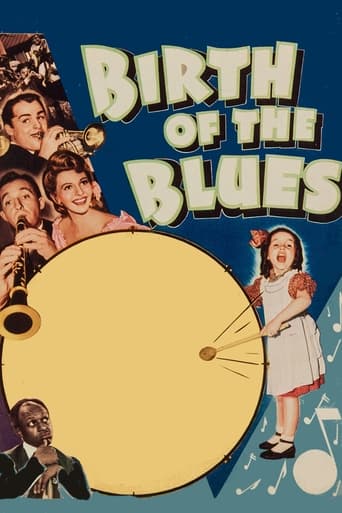
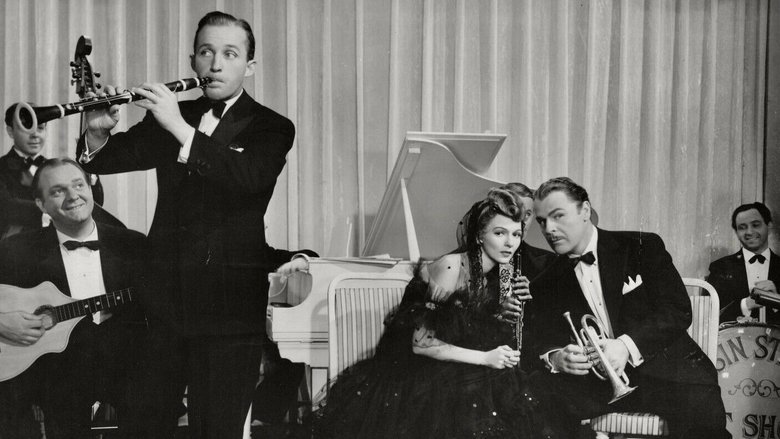
Birth of the Blues (1941)
Jeff grows up near Basin Street in New Orleans, playing his clarinet with the dock workers. He puts together a band, the Basin Street Hot-Shots, which includes a cornet player, Memphis. They struggle to get their jazz music accepted by the cafe society of the city. Betty Lou joins their band as a singer and gets Louie to show her how to do scat singing. Memphis and Jeff both fall in love with Betty Lou.
Watch Trailer
Cast


Similar titles
Reviews
BIRTH OF THE BLUES (Paramount, 1941), directed by Victor Schertzinger, stars Bing Crosby in an interesting production that's "Dedicated to the musical pioneers of Memphis and New Orleans who favored the "hot" over the "sweet" - those early jazz men who took American music out of the rut and put it "in the grove." In musical terms, "blues" is not a form of depression but a music style of ragtime/jazz that originated by Southern blacks dating back to the 1890s. W.C. Handy (1873-1958), "Father of the Blues," the most recognizable of blues composers of his time, was only an honorable mention along with such notables of both black and white legends as Ted Lewis, Duke Ellington, Louis Armstrong, Tommy and Jimmy Dorsey, Benny Goodman, George Gershwin and Paul Whiteman before the film's conclusion. While BIRTH OF THE BLUES could very well have been a biography to any one of these greats, playing more like a biography in general, but in present form, is basically a fictional account the birth of the first Dixieland Jazz Band.Opening in the 1890s, the plot begins with prologue in "Jazz Singer" plot-style where a Louisiana boy named Jeff Lambert (Ronnie Cosbey) is seen clarinet playing to "darkie music" among black musicians on the dock side of Basin Street by Louey (Eddie "Rochester" Anderson), the family servant, thus, reporting the news to the boy's stern musician father (Minor Watson). Knowing full well that Lambert would rather have his son resuming with his classical clarinet lessons, Jeff goes against his father's wishes and accepts his punishment rather than making a promise he'll never keep. Flash forward. The now adult Jeff Lambert (Bing Crosby), better known as "Sunshine," has formed a band, but is unable to gain prominence playing in New Orleans cabarets with his all white musicians playing to Dixieland music. Jeff's luck changes with new additions to his company: Memphis (Brian Donlevy), a white trumpet player serving twenty days in a local jail, and Betty Lou Cobb (Mary Martin), a young woman from Alexandria who supplies Jeff $20 to have Memphis bailed from jail. With no money for her trip back home, Jeff finds himself having both Betty and her Aunt Phoebe (Carolyn Lee), a child no more than age six, as his house-guests. With Louey still looking after Jeff, situations occur following a successful engagement at the Black Tie Café where its owner, Blackie (J. Carrol Naish) and his thugs (Warren Hymer and Horace MacMahon) make certain that their newfound "Basin Street Hot Shots" doesn't get to leave for Chicago where a great opportunity awaits them.During this well-scripted 84 minutes, song interludes and highlights include: "The Birth of the Blues" (sung by Bing Crosby during opening credits); "The Memphis Blues" (by W.C. Handy); "Gotta Go to the Jailhouse," "By the Light of the Silvery Moon," "Tiger Rag" (played by Dixieland Jazz Band); "Waiting at the Church," "Cuddle Up a Little Closer" (sung by Mary Martin); "Wait Till the Sun Shines, Nellie," "My Melancholy Baby" (sung by Crosby to Carolyn Lee); "The Waiter, the Porter and the Upstairs Maid" (new song by Johnny Mercer and Robert Emmett Dolan, performed by Crosby, Martin and Jack Teagarden); "The St. Louis Blues" (hauntingly sung by Ruby Elzy); and "The Birth of the Blues" (sung by Crosby during the montage featuring other blues performers).Though disappointing through its historic accuracy, it succeeds in entertainment values. Bing Crosby and Mary Martin work just as well here as their did in their initial offering, RHYTHM ON THE RIVER (1940), while Paramount's resident tough guy, Brian Donlevy, has his moment fist-fighting with Bing for one scene. Aside from the aforementioned leads, the best moments go to Eddie Anderson (billed simply as his character "Rochester" from Jack Benny radio fame) where he gives singing advice to Betty (Martin)from a black man's point of view. Very much a black and white production, there's an interesting use of color slide shows on the motion picture screen during the movie house sequence. Others featured in the cast include Harry Barris (Suds); Cecil Kellaway (the French accented Mr. Granet) and Barbara Pepper (Maisie).Out of circulation since public television broadcast days in some states (1980-1990s), BIRTH OF THE BLUES can be found on DVD along with Crosby's musical, BLUE SKIES (Paramount, 1946) on the flip side. Although the title BIRTH OF THE BLUES could easily be confused with another 1941 release of BLUES IN THE NIGHT (Warner Brothers), or even that of the television title to ST. LOUIS BLUES (Paramount, 1939), a/k/a BEST OF THE BLUES, the Crosby edition, nearly forgotten to today's generation, happens to be one of the more enjoyable birth of the blues presentations for its time. (***1/2)
The blues is a black American invention...period. So, seeing and hearing Bing Crosby and a bunch of white actors singing what they refer to as 'the blues' and its birth is pretty funny....in a sad way. It's a lot like the 1950s when black rock 'n roll songs were remade by dull white singers--such as when (I kid you not) Pat Boone remade Little Richard's "Tutti Frutti"--and outsold the original! Sad...very sad.Now despite the title of the film being 100% ridiculous, there is one other problem with the film. Most of the music is NOT the Blues but Dixieland--a much happier and bouncier variation on Jazz and the Blues. Now I don't mind this style of music--but this isn't the film's title! So is the film worth seeing? Well, yes--provided you don't take the film very seriously. The actors (Bing Crosby, Brian Donlevy and Mary Martin) are fine--but very white and middle-class. An enjoyable film but not at all a tribute to the black men who created this music. While the black men are mentioned (such as by using enlightened phrases like folks referring to it as 'darkie music'!), this is clearly a white-wash--though an enjoyable one.
Another of Der Bingle favorites with Mary Martin; wow, how I loved her; her heart really sang to Daddy. I haven't seen it for some years, but I do have it on VHS which I recorded. I have over 1000 recorded VHS movies all in the garage, so now that I am retired, I have time to look at some now and then. This also has Crosby singing with Louis Armstrong.
As with many musicals of the era, the little girl of the film sparks a sort of magic, something Carolyn Lee was quite good at. She first appears as six-year-old "Aunt Phoebe" sliding down a spiral banister and landing on Bing Crosby's lap, after which she smashes his lucky hat. Bing, nice guy that he is, takes her on his lap and smiles tremendously. So Phoebe becomes a sort of mascot/hanger-on of the early New Orleans blues band that struggles to survive against strong prejudices against "darkie" music. Every time she opens her little mouth to say a few lines I found myself giggling at her. Some of her pranks are quite memorable. I especially liked the scene where she paints herself in white-face and puts a girdle on for a dress. Her little broom dance with Rochester is also adorable. Carolyn was a very funny little girl. Towards the end of the movie Bing picks her up and lullabies her to sleep with the #1 hit song of 1941, "Melancholy Baby". I never imagined this song was written to sing to six-year-old Carolyn Lee. The Melancholy Baby scene alone is worth the price of admission.The movie is well filmed, the jazz is great, the acting good and the story interesting. Bing is at his best, Mary Martin is gorgeous and Brian Donlevy with his rakish mustache is quite the rogue. One thing I liked about the film was the close, friendly relationships between the African-American and White jazz musicians. Seems like the jazz folks were ahead of their time and we can only wish that the rest of the country will eventually catch up.


